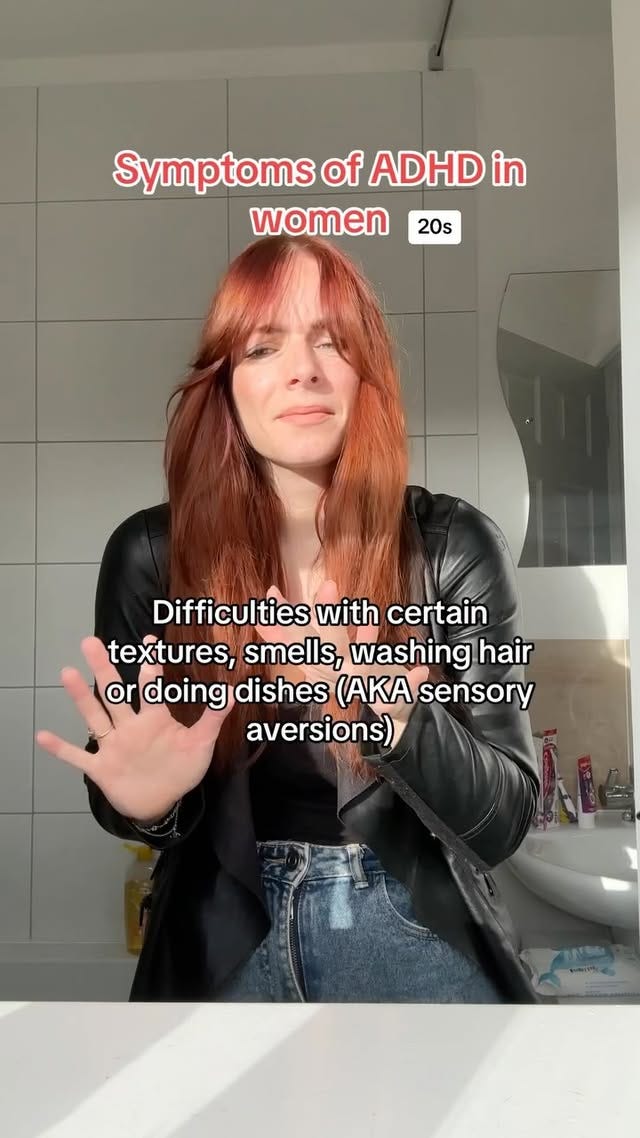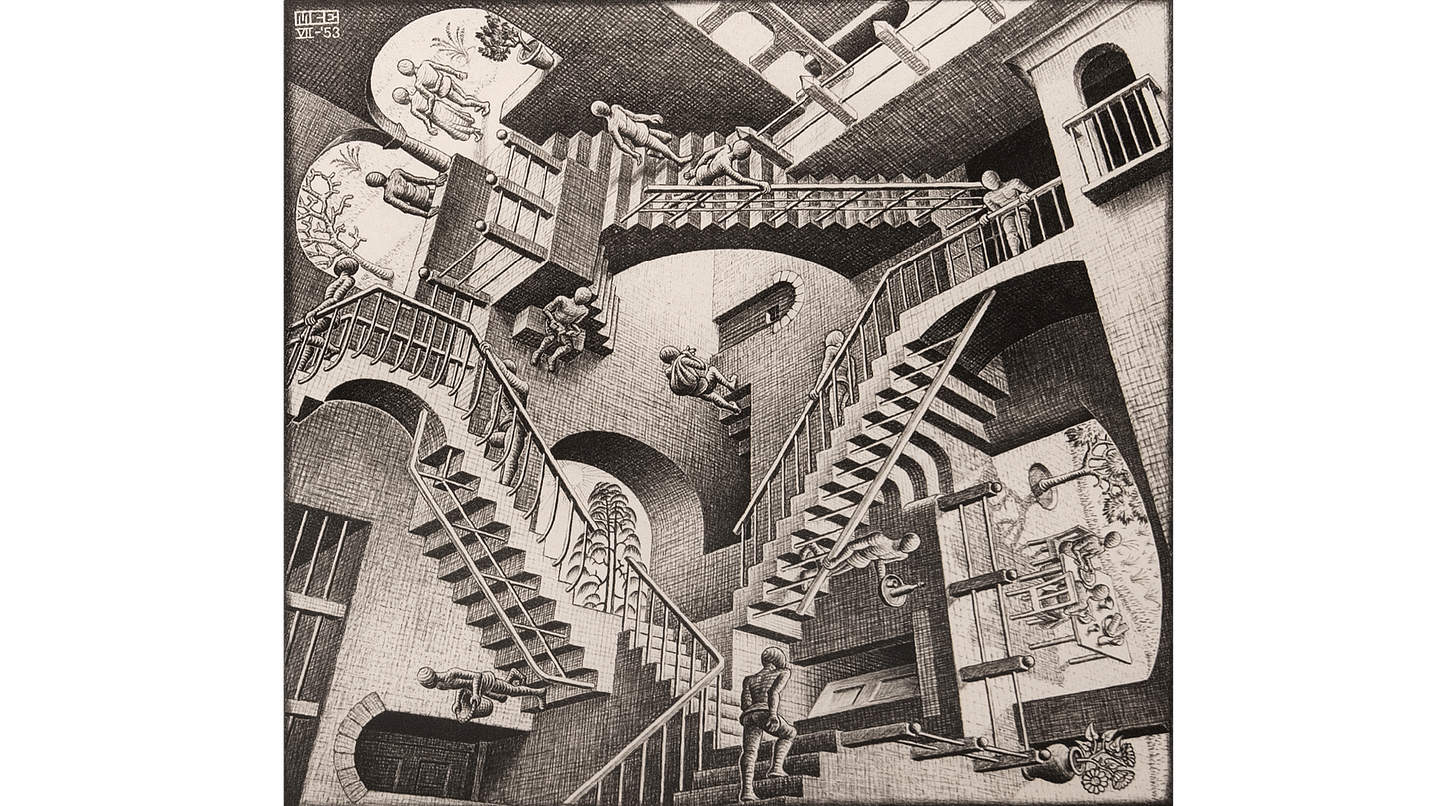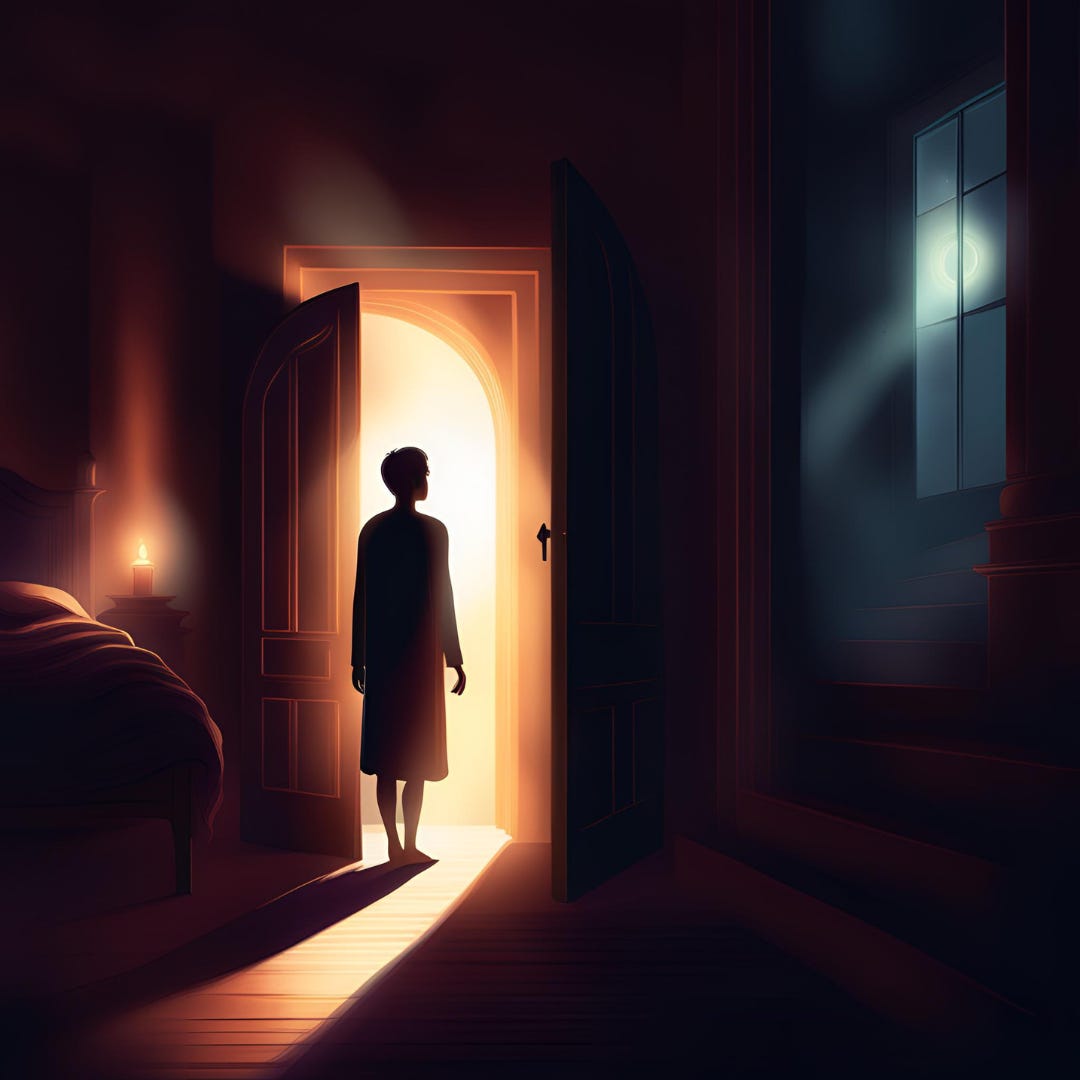Waking up divergent – Part 2
(The catalyst)
Back in January I started worrying that something was truly awry in my brain. I considered going to the doctor and asking to get an MRI. That’s how strongly I felt that something had changed or was changing: a visceral sense of my mind not working the way it did before. Sudden forgetfulness, scattered focus, losing track of time…
I probably would have prevaricated for months before actually doing something about it, waiting to hit some kind of breaking point. But something else happened instead.
I woke up.
Read Part 1 here:
Rewind:
Over the past few years I became curious about neurodivergence. Likely due to a rise in neurodivergent-influencer content as well as my endless quest for self-optimisation and a niggling question mark over whether there was a unifying theory underlying some of my chronic tendencies.
Whether the content or the curiosity came first, as soon as I began paying attention to the ‘POV you have ADHD…’ reels, naturally they flooded my feed. I, in turn, identified more and more of myself in these meme-ified behaviours, all the while wondering, ‘is this just ‘relatable content’? Or is this specifically me?’.
For a while I was targeted constantly by online ADHD and ASD (Autism Spectrum Disorder) tests driven by a spate of startups claiming to have groundbreaking medication-free app-based therapies for the neurodivergent. I did quite a few but never scored highly ‘enough’ (or trusted them enough) to give me certainty either way. According to these standardised lists, I didn’t present with many of the most common traits associated with either diagnosis.
Those with ASD are typically known for ‘social awkwardness’, or an inability to detect social cues, inflexibility, and difficulty understanding emotions often presenting as a lack of empathy—all leading to difficulties making friends and maintaining relationships. None of this resonated with me, socially confident, with dozens of friends from a range of contexts around the world.
In the case of ADHD, we all know the ones: easily distracted, inability to focus or sit still, interruptive and doesn’t stop talking etc.. The classic image that comes to mind is a hyperactive little boy. Yes—it’s rarely a girl is it? But have you ever stopped to question why? I hadn’t either, until recently.
My doubt was further compounded by the fact that no-one had ever suggested this could be me.
‘Aren’t we all a little weird?’, said the rationalising voice in my head, ‘normal doesn’t really exist, everything is a spectrum and everyone is somewhere on it.’
‘Just because you have some of the traits,’ it continued, ‘it doesn’t mean you have a disorder’.
Deep down, I wanted to be ‘special’—I wanted there to be truth to the feeling that I was different. But isn’t that the biggest cliché on Earth? Isn’t that just a tale as old as time?
‘Everyone wants to be special. Everyone thinks that they’re different. When everyone is special, no-one is.’
Aside from the above average IQ, the high sensitivity, the obsessive compulsive tendencies, the eating disorders, the difficulties with emotional regulation, hyper perfectionism and an unparalleled ability to self-reflect, I was perfectly normal. High functioning with a small side of mental illness—that’s standard, right?
The desire to conform dies hard, even for people who want to stand out.
So I listened to the voice and ultimately dismissed my speculation. As my focus shifted, the neurodivergent content quickly disappeared, replaced by AI-generated Romantasy character art and breezy linen holiday outfits.
{Do you recognise this voice? Maybe you have one too. It’s the voice of generational stoicism and emotional repression that says: you’re fine, stop complaining, stop looking for excuses, stop overreacting, you’re not sick, you just need to work harder, do better, and keep going!}
Fast forward:
Then I began therapy in October last year. In a few sessions, my therapist mentioned to me in that some of my behaviour and experiences suggested I might have a neurodivergence. It took a couple of these comments for me to seriously pay attention to the idea, despite my earlier suspicions. Yes, that voice still had me fairly convinced.
She recommended I read ‘Divergent Mind: Thriving in a World That Wasn’t Designed for You’ by Jenara Nerenberg, which piqued my interest. It seemed like an easy, inexpensive way to explore the subject further, and perhaps get some more nuanced answers than what social media could provide (to say the least). I purchased the audiobook and began.
This is when I was introduced to the fact that neurodivergence often presents very differently in women, but as with almost every other health issue since the dawn of medical science, the majority of the research has been done on men. Because we present ‘atypically’ (compared to men), we are often not diagnosed until later in life, in our 30s or 40s. A common catalyst for seeking a diagnosis is having children and identifying our symptoms in them.
When I got to the chapter describing the experiences of real women with ADHD, lights slowly began to blink on. This did sound like me. Much more like me than the generic descriptions I’d read online.
But it was the chapter on Autism when the wave of realisation fully struck. As I listened to the narrator enumerate a hundred different ways in which Autism presents in women, I cried and cried and cried. I had to stop a few times before I got through the entire list. Hearing so many aspects of my so-called ‘personality’ that I had never put into words, described painfully accurately, was overwhelming.
{The Autism/Aspergers list in Divergent Mind is an abridged version of this one by Samantha Craft}
I cried uncontrollably at random times for days afterwards. Which, if you knew me you would know, is unheard of. Although now I’m beginning to feel like maybe no-one actually knows me. Including myself.
I recognise that reading a book is hardly an official diagnosis. But like a dozen keys turning in a dozen locks, so many things clicked into place as I read through starkly familiar descriptions of my inner world—a place that I have not told anyone about and could not have explained even if I wanted to—seen through so many other’s eyes, could it be anything other than real? I feel deeply, somatically, that this is a truth I’ve been arriving at for a lifetime, even though I’ve resisted it for so long.
Suddenly I made sense. My brothers made sense. My father made sense. Hell my entire family, on both sides, makes way more sense through the lens of neurodivergence than any other explanation I could have previously come up with.
Today:
I thought my brain was malfunctioning. Turns out it’s the opposite—it’s healing. The time, space and self-work of the last few months have triggered the beginnings of a re-organisation of my inner system.
For the first time in my conscious life, I’ve been released from the cycles of overcompensating and numbing and coping and repressing that I’ve been trapped in since childhood. My mind is trying to find the state that it always was in small part, but was never allowed to fully be.
It’s like waking up in a room that you’ve never been in, in a house that you’ve lived in your whole life. And then discovering that there are yet more undiscovered rooms that exist in that house, behind doors that you’ve been wilfully blind to until now.
It’s the feeling of walking down a street you’ve walked down a million times, and one day looking up and there’s a whole building that you’ve never noticed before—yet it has clearly always been there.
It’s as if you’ve been underwater for 34 years, breathing through a mask and an oxygen tank. And now you’re at the surface, gasping fresh air.
I’ve been operating using two different systems simultaneously most of my life. What happens when I surrender the ‘normal’?
What is ‘me’ and what is a manifestation of neurodivergence?
What is neurotypical and what is masking?
Do the answers to these questions matter?
I don’t know where to begin to untangle all of it, or if it even needs untangling. I am optimistic and apprehensive. But there’s no turning back now—the door has been opened.








Mimi thank you for being so generous and vulnerable, articulating all of this so clearly and allowing us into the process you’re going through. It’s our privilege to get a peek into it, and I know anyone that is feeling the same way or has felt like this will be moved by it. 🧡 excited for your next step along the road of healing, just know you’ve more people than you can imagine cheering you along it.